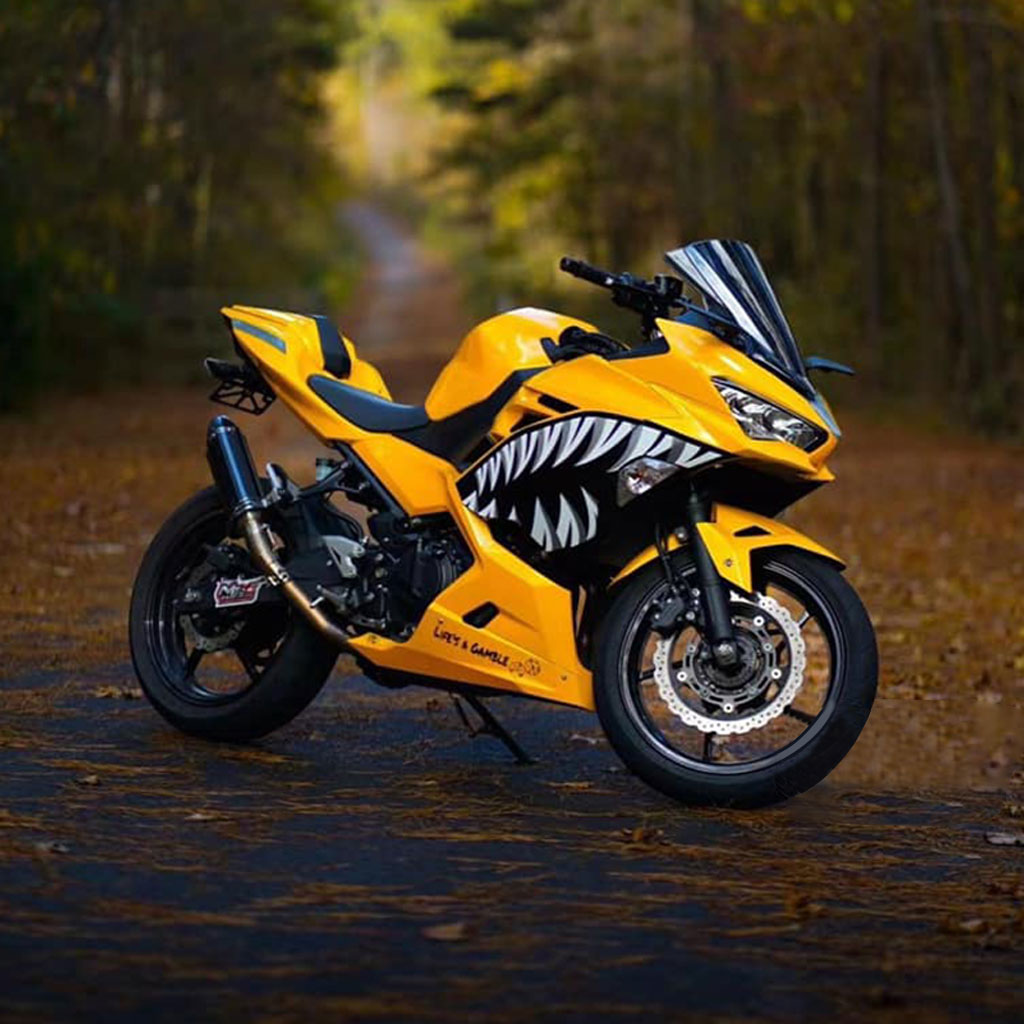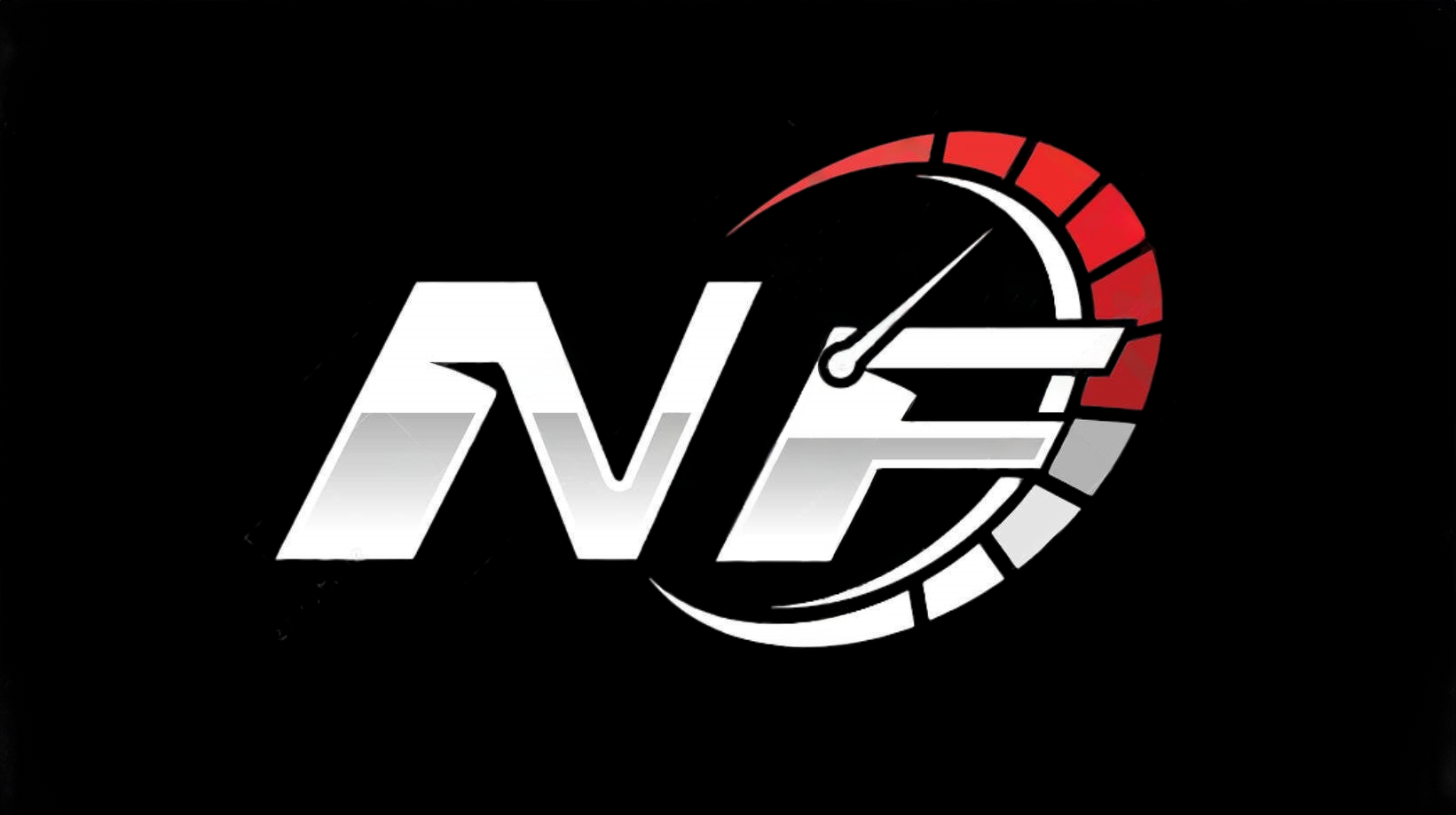The Evolution of Sportbike Fairings: From Honda CBR Classics to Ducati Panigale Modern Designs
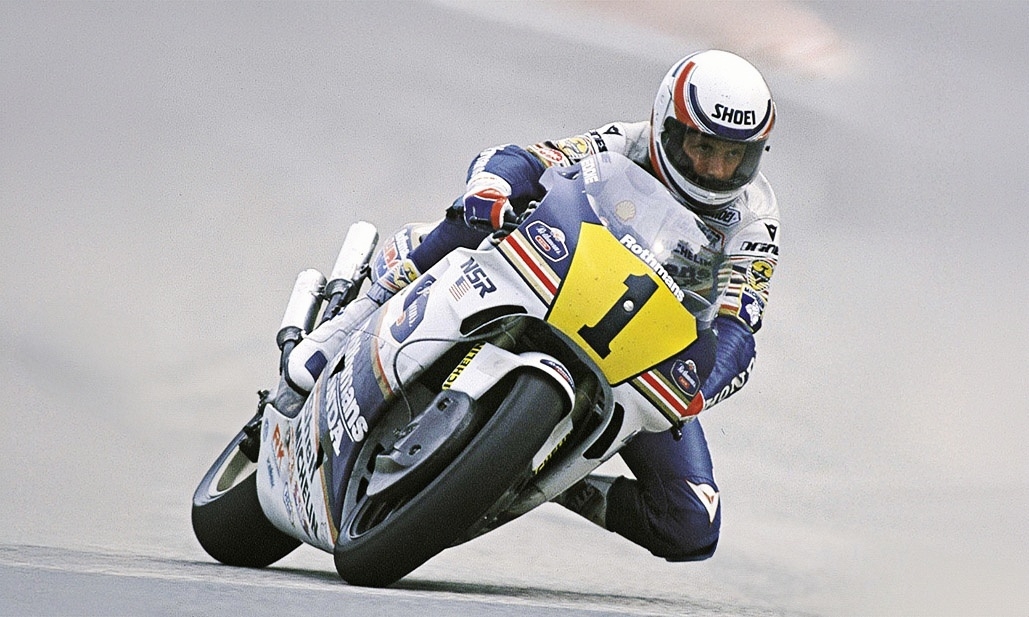
Sportbike fairings are important for how bikes work and look. These outer panels cover parts of the bike to cut wind drag. They help the bike go faster by guiding air smoothly. Fairings also make the bike more stable while riding. Makers use them to shield key parts and make bikes look better. Their smooth shapes mix usefulness with style, making them key to fast motorcycles.
Key Takeaways
Sportbike fairings help cut wind, increase speed, and add balance.
Fairings have changed from simple to sleek shapes, improving bikes a lot.
New materials like carbon fibre make fairings lighter and tougher for better rides.
Cool designs, like in Honda CBR and Ducati Panigale, raise the bar for looks and speed.
Custom fairings let riders make bikes their own, boosting style and performance.
The Origins of Sportbike Fairings
Early Racing Applications
Sportbike fairings started in the early 1900s with racers. They wanted to make bikes faster and steadier. In the 1920s and 1930s, riders tried simple fairings made of metal, leather, or cloth. These early designs helped cut wind resistance and improve speed. After World War II, brands like BMW and NSU added fairings to their bikes. This made bikes more aerodynamic and gave riders better wind protection. By the 1950s, fairings became essential in racing, leading to more improvements.
Transition to Commercial Motorcycles
Fairings moved from racing bikes to everyday motorcycles, changing their design. Makers saw that fairings helped save fuel and reduced tiredness on long rides. In the 1960s and 1970s, "dolphin" fairings became popular. These fairings improved aerodynamics without losing balance. Many companies used this design for both racing and regular bikes. By the 1980s and 1990s, full fairings became common on sportbikes. They made bikes faster and also looked stylish.
The Impact of "Dustbin" Fairings
In the 1950s, "dustbin" fairings appeared with a sleek shape. They helped bikes go very fast in straight lines. But they were hard to control in turns or strong winds. Because of safety risks, they were banned in racing. Even with these problems, dustbin fairings improved bike aerodynamics. They inspired better designs like dolphin fairings, which balanced speed and control.
Evolution of Sportbike Fairing Designs
The Introduction of "Dolphin" Fairings
In the 1960s, "dolphin" fairings changed sportbike designs. These fairings had a curved shape, like a dolphin. They balanced speed and control better than "dustbin" fairings. Dolphin fairings made bikes steadier in turns and windy conditions. Manufacturers loved this design for both racing and regular bikes.
Dolphin fairings worked like a swimmer's smooth body in water. A swimmer's shape cuts drag and boosts speed. Similarly, dolphin fairings helped bikes go faster while staying stable. For example, streamlined swimmers swim faster, while others slow down. Dolphin fairings let bikes keep speed without losing control.
Full Fairings and Aerodynamic Advancements
In the 1980s and 1990s, full fairings became common on sportbikes. These fairings covered the bike's front and sides, cutting wind drag. Wind tunnel tests and materials like carbon fibre improved their design. This made bikes faster, reduced rider tiredness, and boosted performance.
Time Period | Development Description | Impact on Sportbike Fairings |
|---|---|---|
Simple wind deflectors were added to bikes. | First step towards better aerodynamics. | |
1980s-1990s | Full fairings became normal for sportbikes. | Better speed, less wind drag, and less rider fatigue. |
Early 2000s | Wind tunnels and carbon fibre improved fairings. | Sleeker shapes for top aerodynamics. |
These changes made sportbike fairings vital for speed and design.
Integrated Designs for Modern Sportbikes
Today’s sportbike fairings are advanced and stylish. Makers focus on speed, comfort, and looks. For instance, the RS 660 has a double fairing. It keeps the bike steady at high speeds and shields riders from wind. It also moves hot air away, making long rides more comfortable.
Feature | Description |
|---|---|
Aerodynamic Design | The RS 660’s double fairing improves stability at high speeds. |
Rider Comfort | It protects riders from wind and moves hot air away. |
Innovative Style | Its triple LED headlights make it stand out in any light. |
Research Methods | Tests like wind tunnels and road trials proved its effectiveness. |
Modern fairings show how sportbikes now mix speed, comfort, and style perfectly.
Honda CBR Classics and Fairing Innovation
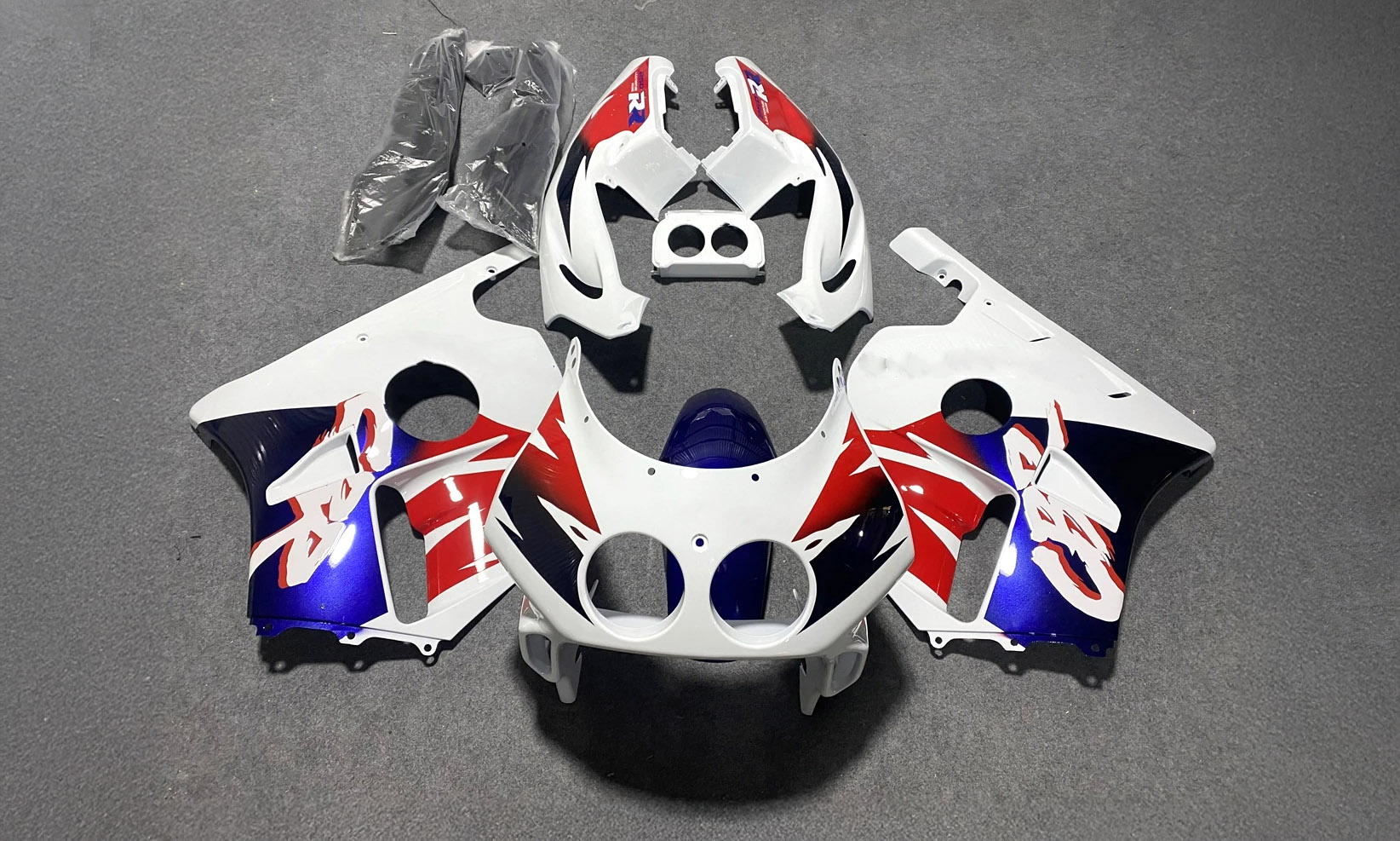
The CBR Series' Design Philosophy
Honda's CBR series shows a focus on smart and flexible designs. Engineers used ideas from past successes to solve new problems. They studied old designs and improved them for better results. This helped create fairings that cut wind drag and kept riders comfortable. The CBR series aimed for balance, offering speed, control, and good looks. This approach made the CBR series a leader in sportbike design.
Key Features of Early CBR Fairings
Early CBR fairings had many new and clever features. They had smoother shapes to cut wind drag and improve airflow. The CBR600F2 was a big step forward in aerodynamics. The CBR600F3 added a ram-air intake and better fairings for more power and stability. Later, the CBR600F4i had dual headlights and bodywork to reduce wind resistance. These changes made bikes faster and set new standards for fairings.
Model | Key Features | Performance Improvement |
|---|---|---|
CBR600F2 | Smoother design, better airflow | Better test results than earlier models |
CBR600F3 | Improved engine, ram-air intake, updated fairings | |
CBR600F4i | New body shape, dual headlights | 3% less drag, 40% brighter lights |
Influence of the CBR Series on Sportbike Fairings
The CBR series changed how sportbike fairings are made. Its smart designs pushed other brands to focus on speed and comfort. The series showed fairings could boost speed and control while looking great. Modern bikes like Ducati and Yamaha use ideas from the CBR series. Companies like Nicefairings now let riders customise their bikes with these advanced designs. The CBR series still inspires the way sportbike fairings are created today.
Ducati Panigale and Modern Fairing Redefinition
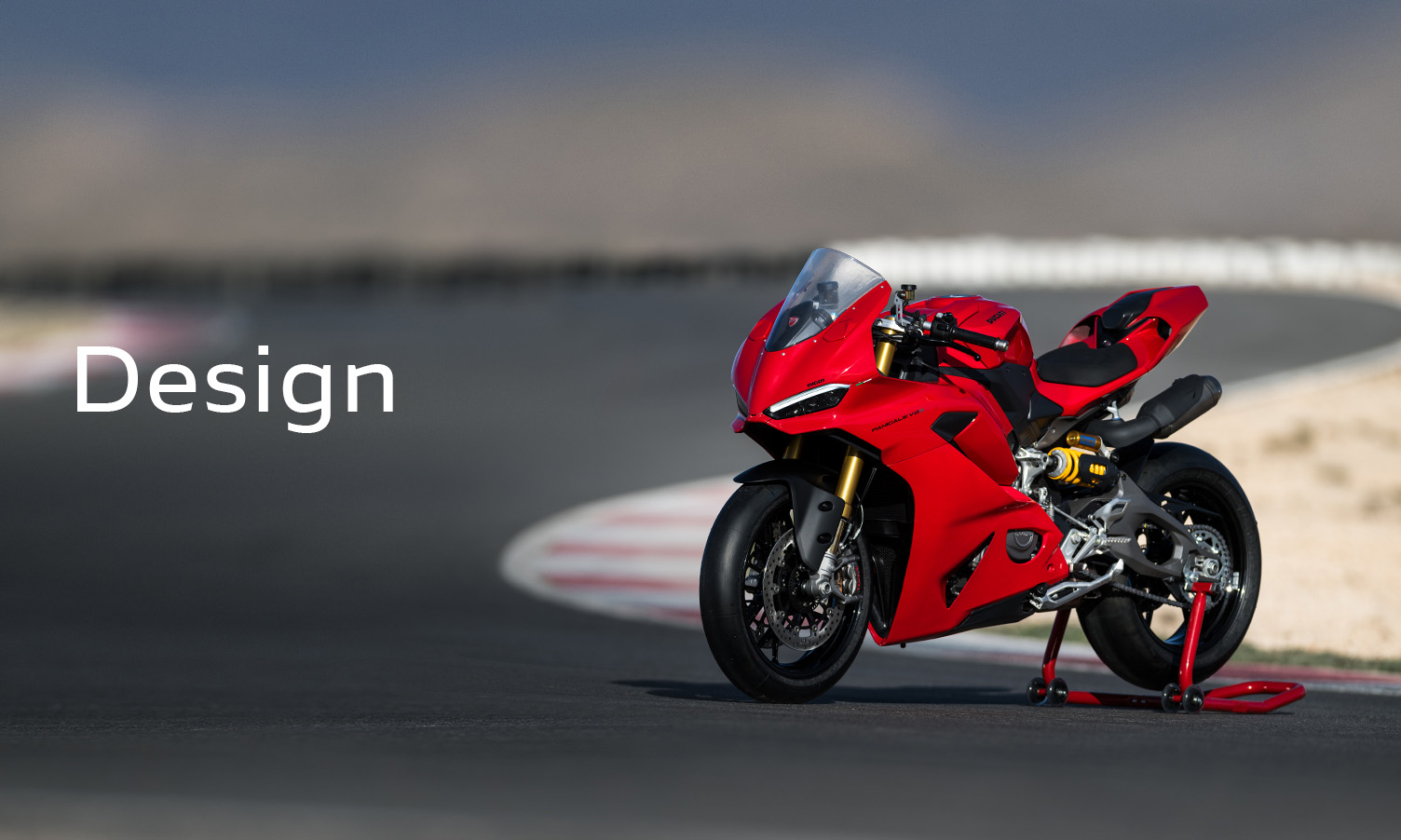
Aerodynamic Innovations in Panigale Fairings
Ducati Panigale fairings show big improvements in aerodynamics. The 2022 Panigale V4 has double wings that create 81.5 lbs of downward force at 186 mph. This helps keep the bike steady at high speeds, especially on racetracks. The updated fairing also has vents to cool the engine better, keeping it running smoothly during tough rides.
The Panigale V4’s biplane wings add 110 lbs of downforce at 270 kph. This is 44 lbs more than older models. This extra force improves braking and stops the front wheel from lifting when speeding up. Ducati’s focus on aerodynamics makes these fairings as good as MotoGP bikes, setting a new level for sportbike fairings.
Advanced Materials in Panigale Designs
Ducati uses modern materials to improve its fairings. The 2025 Panigale V4 includes carbon fibre and aluminium instead of older materials. Carbon fibre parts, like the seat tail and mudguards, make the bike lighter and stronger. These materials also handle stress well, making the bike durable during fast moves.
Lightweight materials not only improve speed but also make the bike look sleek. Aluminium adds strength without making the bike heavy, keeping it agile. These changes show Ducati’s dedication to creating better sportbike fairings.
Blending Performance and Aesthetics
Ducati Panigale fairings mix great performance with stylish looks. Their aerodynamic shapes boost speed and stability, while bold colours and smooth lines make them eye-catching. Features like LED headlights and sculpted designs show Ducati’s attention to detail.
The Panigale’s fairings are not just useful; they also look amazing. Riders can personalise their bikes with brands like Nicefairings, which offer custom designs for Ducati models. This lets riders improve both how their bikes perform and how they look, making each Panigale special.
Materials and Aerodynamics in Modern Sportbike Fairings
Change from Fibreglass to Carbon Fibre
Switching from fibreglass to carbon fibre changed sportbike designs. Fibreglass was cheap and easy to shape but heavy. Its weight and weaker durability limited bike performance. Carbon fibre became a better choice, being lighter and stronger. This material improved speed and control, perfect for fast bikes.
Modern bikes like the Ducati Panigale V4 use carbon fibre a lot. Parts like seat tails and mudguards are made with it. It handles stress well during fast rides and looks sleek. Its smooth look matches the aerodynamic shapes of today’s bikes. This change shows how bike makers keep improving designs.
How Computational Fluid Dynamics (CFD) Helps
Computational Fluid Dynamics (CFD) changed how fairings are designed. Engineers use CFD to study how air moves around bikes. It shows where drag and turbulence happen. This helps them adjust fairings for better airflow without needing many physical tests.
CFD helped create bikes like the Suzuki GSX-R750, which had full fairings in the 1980s. By testing airflow, designers made bikes faster and steadier. Today, CFD still helps improve fairings for speed and control. This technology shows how science makes bikes better.
Balancing Weight, Strength, and Performance
Making fairings light, strong, and fast is tricky. Light materials like carbon fibre make bikes quicker and easier to handle. But fairings also need to be tough to handle stress from fast rides and sharp turns.
Bike makers mix materials to solve this problem. Aluminium adds strength without making bikes heavy. Special plastics are also used for flexibility and durability. These ideas make fairings strong, light, and good-looking.
Modern fairings improve speed, reduce tiredness, and look stylish. The use of new materials and designs shows how bikes keep getting better in every way.
The history of sportbike fairings shows amazing changes in bike design. Starting with basic wind shields, they became advanced aerodynamic parts. Honda's CBR series brought smart designs for speed and comfort. Ducati Panigale changed modern fairings using new materials and features. These improvements set higher goals for performance and style. Fairings now help bikes go faster, stay steady, and look great. They are now a key part of sportbikes everywhere.
FAQ
What do sportbike fairings do?
Fairings help bikes cut through wind better. They protect riders from wind and small objects. Fairings also make bikes steadier and faster. Plus, they make bikes look cooler.
How does carbon fibre improve fairings?
Carbon fibre makes fairings light but strong. This helps bikes go faster and handle better. It also keeps fairings tough during fast rides, perfect for modern bikes.
Why is aerodynamics important for sportbikes?
Aerodynamics reduce wind drag, making bikes faster with less effort. Better airflow keeps bikes steady at high speeds. This makes riding safer and smoother for everyone.
How has CFD changed fairing design?
CFD lets engineers study air movement on computers. It shows where wind slows bikes down. Engineers can then fix fairing shapes faster without building many models.
Can riders change their sportbike fairings?
Yes, riders can get custom fairings for their bikes. They can pick different colours, designs, and materials. Custom fairings make bikes look unique and perform better.
See Also
Crafting Distinctive Motorcycle Fairings for Personalised Style
Top Custom Fairings Tailored for Honda CBR1000RR-R
Unique Designs with Custom Motorcycle Fairings from Nicefairings
The Essential Role of Custom Fairings for Female Riders
Essential Motorcycle Fairing Customisations Every Rider Should Explore
